In this article
It’s hard to resist the pleading eyes your cat gives you as you chow down on a succulent chicken breast or a juicy hamburger. So, you might wonder if you can safely offer your kitty a taste of the meal it’s so desperately begging for. Veterinary nutritionists have worked tirelessly to create species-appropriate cat food that provides the nutrients your kitty needs to thrive. Still, you can occasionally offer your kitty a taste of what’s on your plate as a special treat or reward for good behavior.
Read on to find nine human foods that are safe for you to share with your cat.
What Is the Ideal Feline Diet?
Before we delve into the foods you can share with your kitty from your plate, it’s important to know a little about what your cat’s diet should be.
Cats are obligate carnivores, meaning they rely on the nutrients found only in animal products to thrive. Your cat’s ancestors were hunters – and many domestic cats still are – consuming high amounts of protein, moderate fat, and minimal carbohydrates. In the wild, cats eat the muscle, cartilage, sinew and organs of their prey, which provides all the nutrition they need. Though your domestic cat may hunt toy mice or laser pointers now, its diet still requires the same proportions today. This doesn’t mean that cats should only be fed meat, as this will be lacking in important nutrients and minerals that are vital to their health, and would be as unhealthy as feeding them no meat at all.
Commercially prepared cat foods have been carefully formulated to meet your cat’s nutritional needs and ensure it’s getting the correct balance of nutrients. So, while you can occasionally offer your kitty the foods below as a treat, most of your pet’s diet needs to come in the form of food formulated especially for it.
The 9 Human Foods Your Cat Can Eat
1. Salmon
Salmon is a high-quality protein source and is rich in omega-3 fatty acids. Omega-3s are great for inflammatory diseases, arthritis, kidney disease, and epilepsy. Salmon should always be served cooked, but not smoked or mixed with any herbs or spices that could be potentially toxic. Canned salmon is generally not recommended as it contains too many preservatives.
Opt for fresh-caught salmon instead of farm-raised, and carefully pick all the bones before serving.
2. Chicken
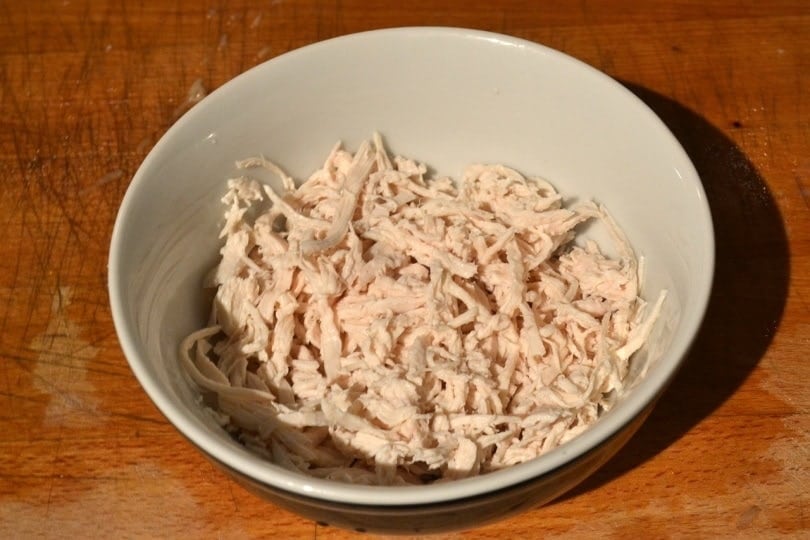
There’s a reason why chicken is so widely available as an option for commercial cat foods. It is a fantastic source of lean protein that your cat needs to thrive. Chicken also contains nutrients like vitamin B12, which your cat needs for its immune and nervous systems.
Remove any fatty skin and cook thoroughly before serving. Please do not add any herbs or spices to the chicken, as they could be toxic.
3. Turkey
Like chicken, turkey is a fantastic lean protein source. It’s low in fat and rich in B vitamins, magnesium, and zinc.
While dark meat contains more B vitamins and iron, it’s best not to offer it to your kitty. It is very fatty and can cause stomach upset and weight gain if fed too frequently. The same applies to turkey skin.
4. Beef
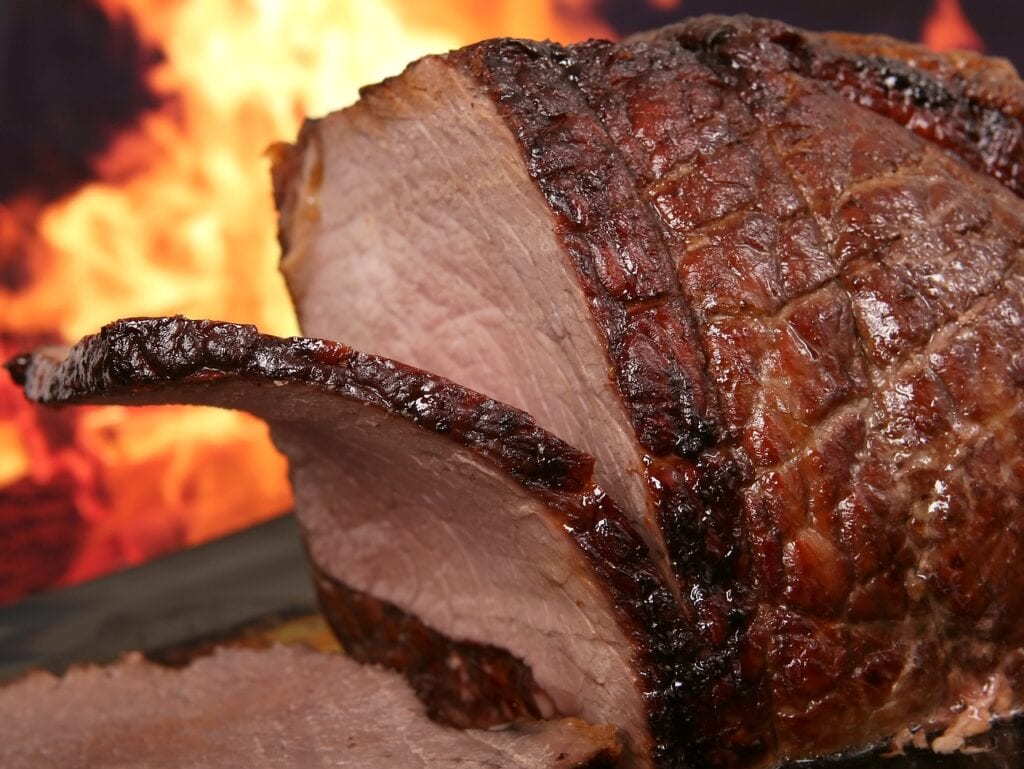
Beef is a highly nutritious protein source you can occasionally offer your cat as a treat. It’s rich in minerals like iron and zinc and provides a decent source of vitamin A, which is necessary for proper growth and vision.
However, beef is more calorically dense and higher in fat than other lean protein sources like chicken. The two types of meat measure pretty closely in protein content, with beef containing just a bit more protein by weight than chicken.
5. Organ Meat
Organ meat (aka offel) such as kidneys, livers, and gizzards, can be a tasty treat for your kitty, if you can stomach preparing them!
Cooked lamb and beef kidneys, for example, are packed full of nutrients like folate and fatty acids.
Cooked chicken liver is safe for cats to eat, but only in moderation. Cooked beef liver provides a decent source of taurine, an essential amino acid cats need in large amounts to support vision and heart health. However, liver is also extremely high in vitamin A, which could lead to toxicosis. Offering only small portions is best to avoid this potentially serious condition.
Cooked chicken gizzards can be eaten occasionally as it’s high in protein and low in fat. They contain taurine and vitamin B12, a nutrient that helps keep your kitty’s immune, digestive, and nervous systems operating as they should.
6. Shrimp
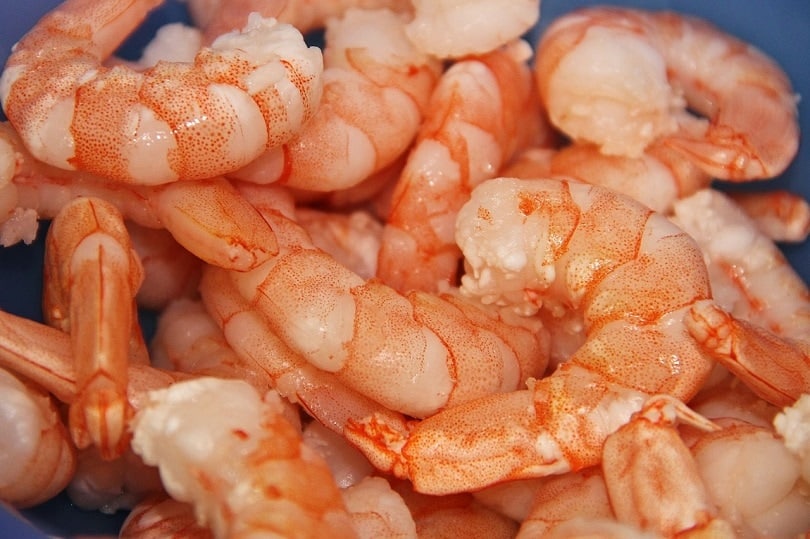
Plain, home-cooked shrimp and prawns are great protein sources. Pair this high protein content with a low calorie count, and you have a tasty, healthy treat for your kitty to indulge in occasionally. Shrimp are also high in omega 3s, zinc, copper, and vitamin B12.
Processed ready-to-eat shrimp are not recommended as they’re high in sodium and often seasoned. Raw shrimp is not ideal either as it can have various bacteria that can cause health complications.
7. Lamb
Lamb is a good source of protein and nutrients such as vitamin B6, vitamin B3, and zinc. The B vitamins are essential for proper nerve function, while zinc is necessary for immune system function. Lamb is also higher in iron than other protein sources like chicken or fish. As with all the other human food on our list, lamb should be cooked and seasoning-free before offering it to your kitty.
8. Pork
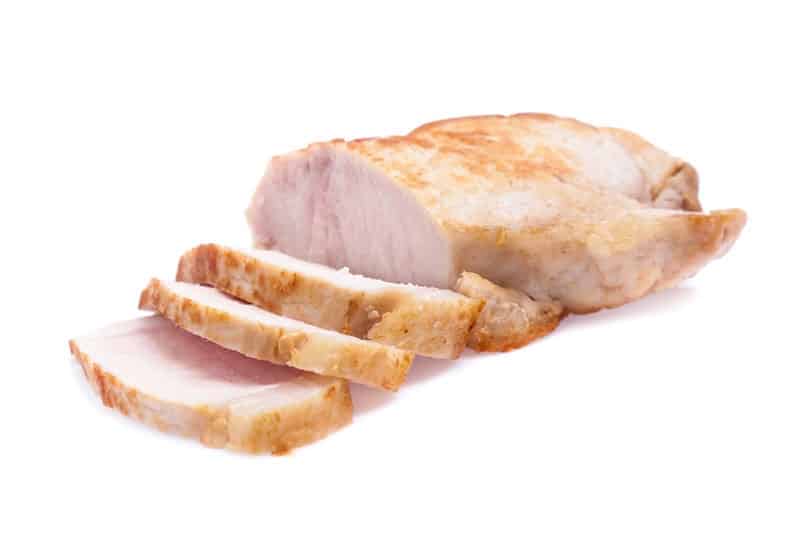
Pork is high in protein, though less than leaner alternatives. It is a great source of many B vitamins like B12 and B6 and minerals like selenium and zinc.
Vitamin B12 is important for your cat’s immune system health, while B6 is essential for making proteins, hormones, and neurotransmitters.
9. Canned Tuna
If you’ve ever opened a can of tuna, only to find that you have become very popular with your feline friends, you might want to know if it’s okay to share. The answer is yes, provided the tuna is in spring water, not brine or oil. Canned tuna should not be fed regularly as it is lacking in many of the nutrients your cat requires, but an occasional meal is okay.
What About Raw Meat?
Raw meat generally isn’t recommended for pets as it can contain bacteria that could be harmful. Studies in Europe and North America show that Salmonella is common in raw meat. Salmonellosis, an infection in cats caused by the Salmonella bacteria, can cause gastroenteritis (stomach inflammation leading to diarrhea and vomiting) and septicemia (blood poisoning). Additionally, this is a zoonotic disease, meaning you can catch it from your cat.
The ASPCA says that raw and undercooked meat, eggs, and bones are potentially very dangerous for our domestic pets, so it’s best to avoid them altogether.
How About Cured Meat or Deli Meat?
You’re likelier to have deli turkey or chicken in your fridge than chicken breasts or a whole turkey. While deli meat is a great protein source for humans, it’s not the best for your feline family members. Processed and cured meats usually contain preservatives, which can harm your kitty’s health. Steer clear of deli and cured meats, including bacon, ham, and salami.
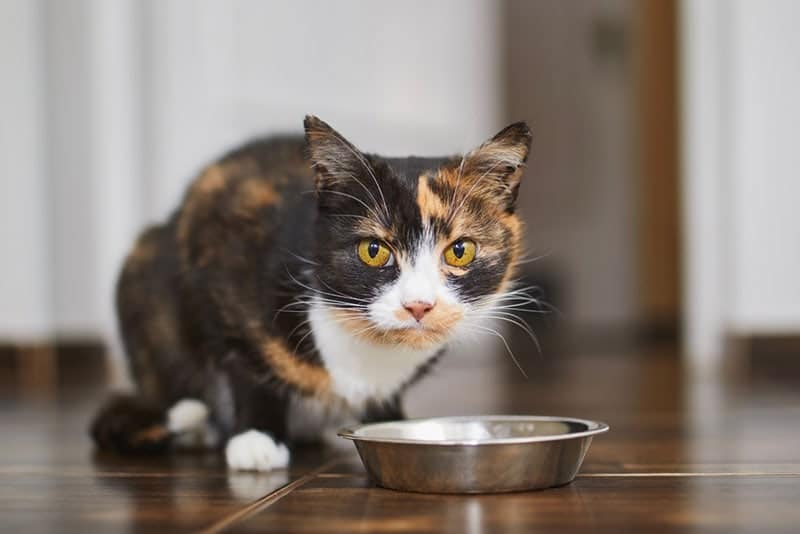
Don’t Cats Love Milk?
Offer a cat a bowl of milk or a slice of cheese and of course they will leap at the chance to devour it. BUT, dairy is not good for them, nor is it needed. Once cats are weaned from their mother, they no longer require milk, and lose the necessary enzymes to properly digest it, so consuming a lot of dairy will often lead to discomfort, diarrhea or vomiting. That being said, the occasional nip of milk or yoghurt won’t do them much harm, provided there are no artificial sweeteners like xylitol. Cat milk has been developed as a dairy-free alternative to offer our cats, but this is more to satisfy the human desire to feed their cats milk, rather than the nutritional needs of the cat.
I Am Vegan – Can I Feed My Cat A Vegan Diet Too?
Unfortunately, no, a vegan diet is not suitable for cats. They need animal based proteins to stay healthy, and even simulated vegan meats will not suffice. Dogs can often be fed on a carefully balanced vegan diet, as they are facultative omnivores, which means that they can obtain their protein from a variety of sources. Despite what you may hear or read, as obligate carnivores, cats need to eat meat.
Final Thoughts
Your kitty is an obligate carnivore that needs animal protein to thrive, and most of its diet should consist of commercially prepared cat foods. However, if you want to offer a tasty and healthy treat occasionally, any of the nine foods listed above are appropriate options for our feline friends.
See Also:
Featured Image Credit: Lia Kos, Shutterstock
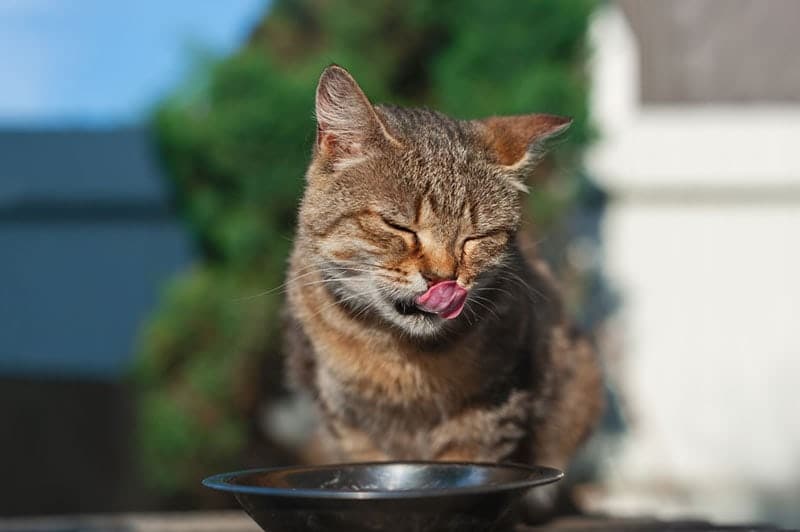



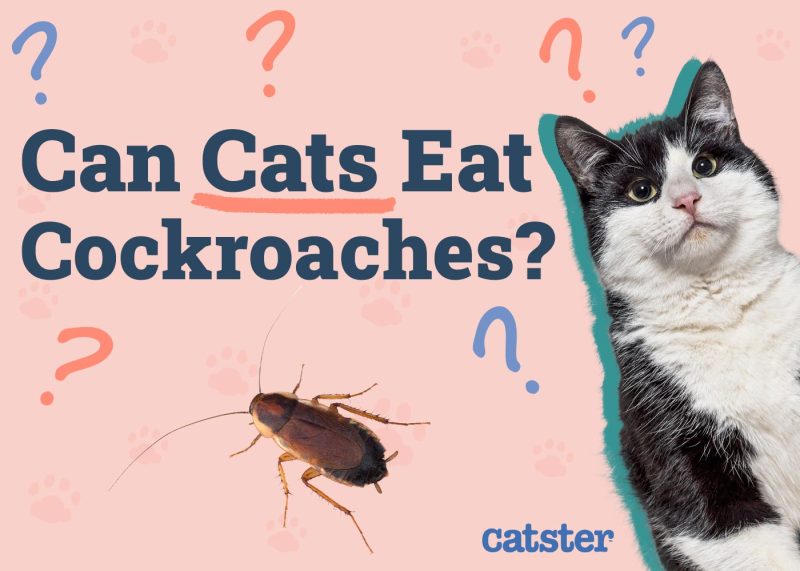
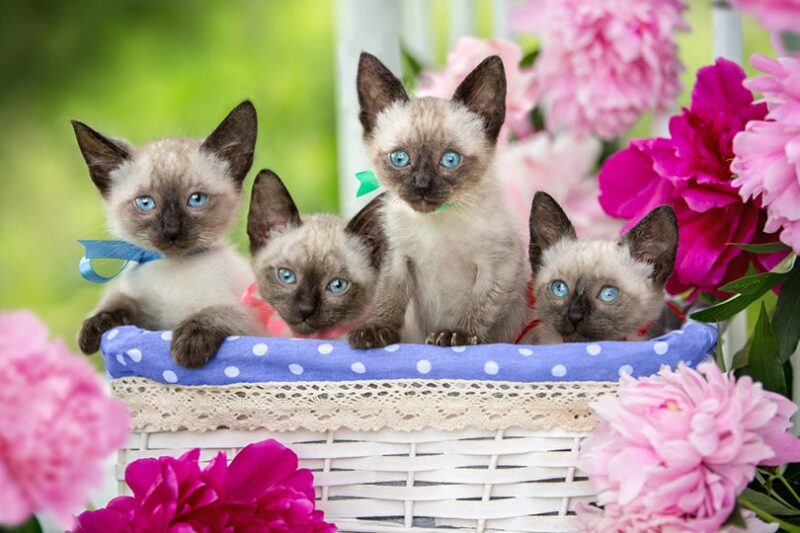
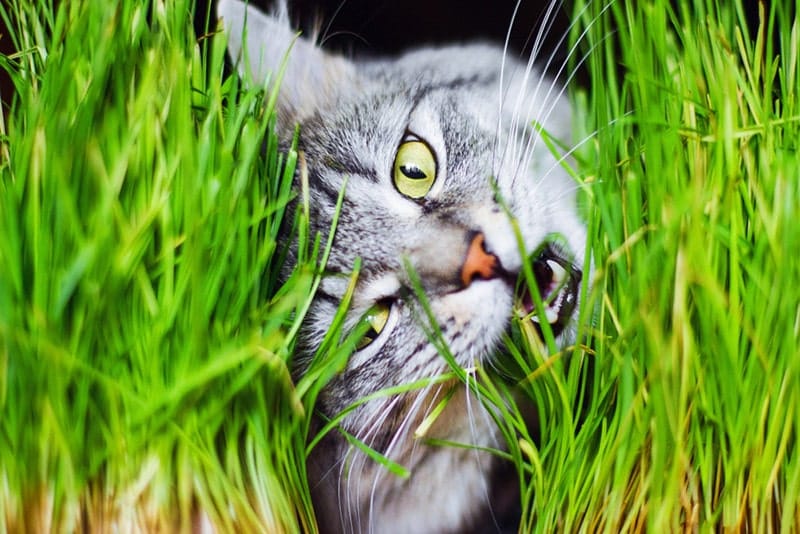
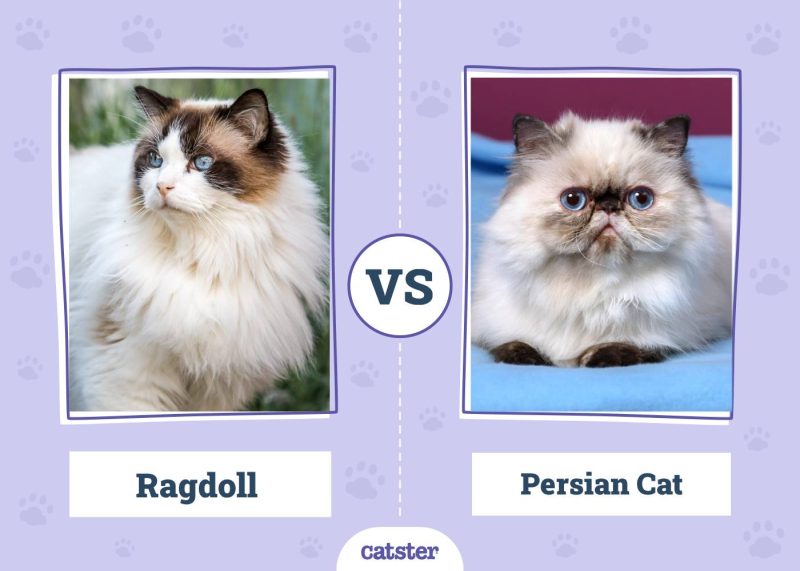

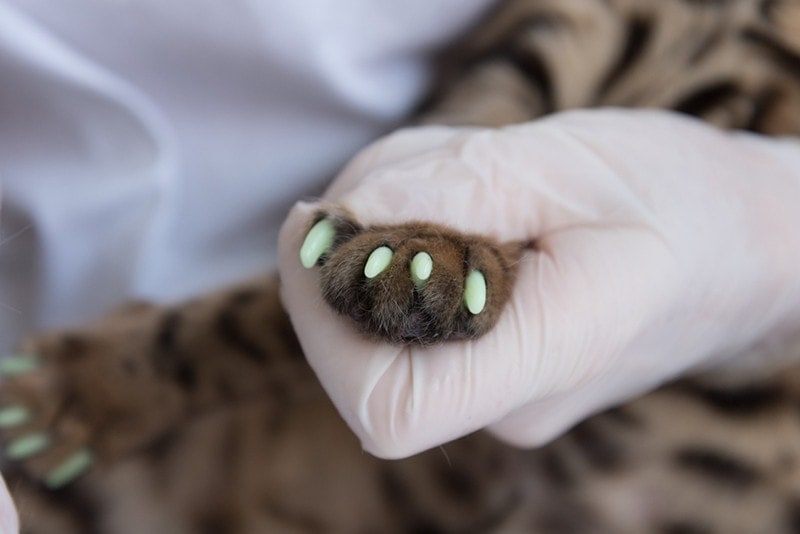
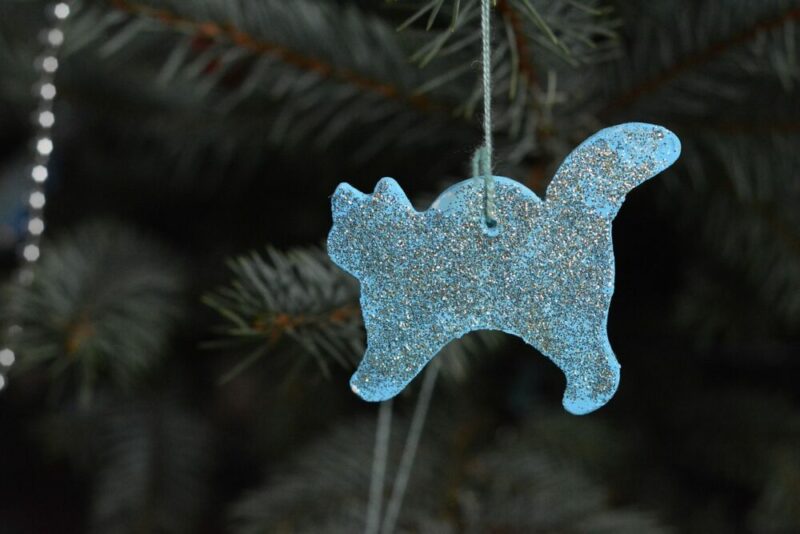
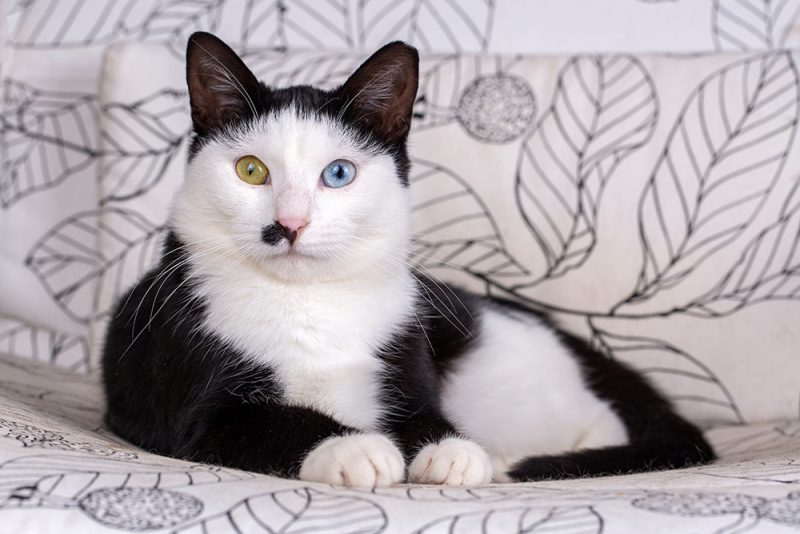
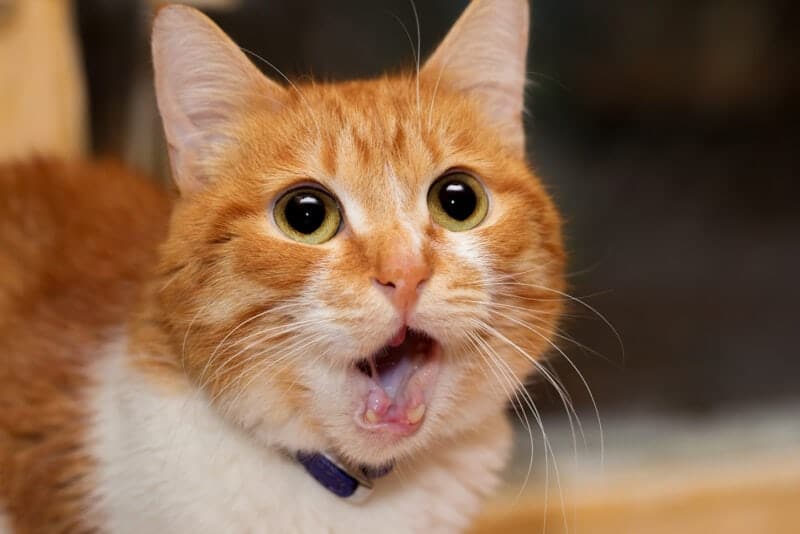
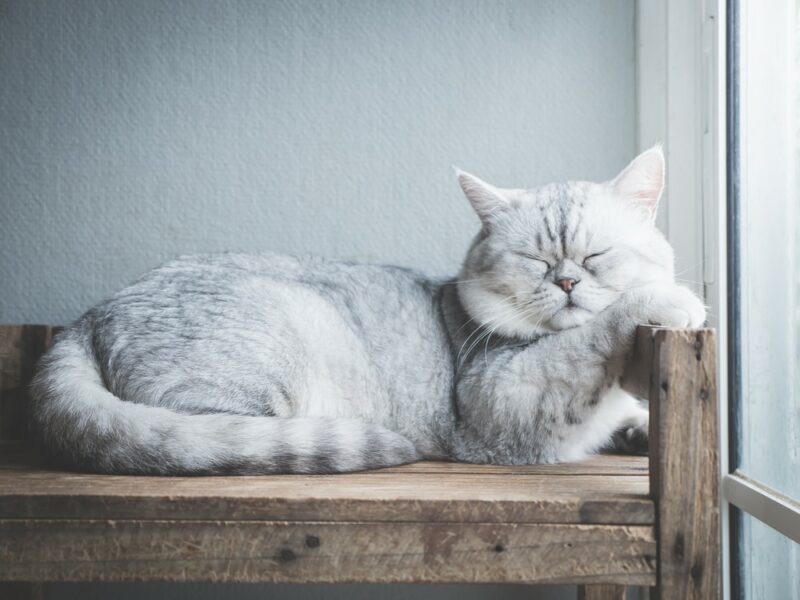
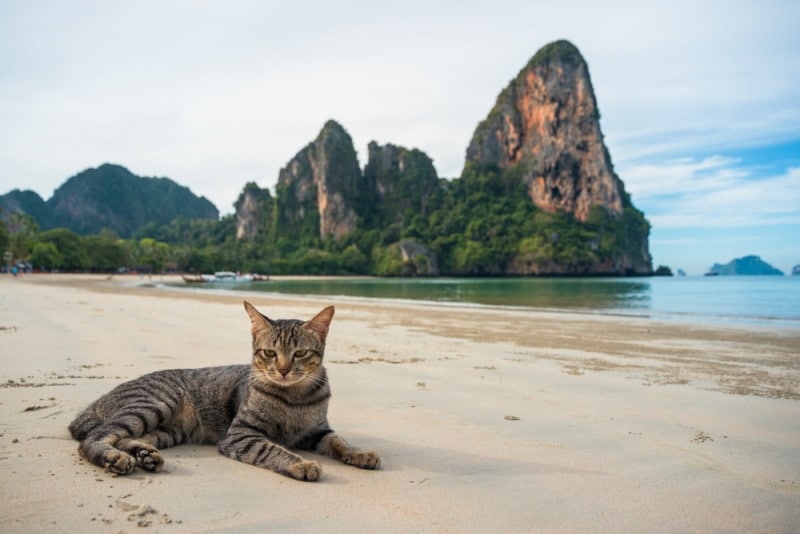
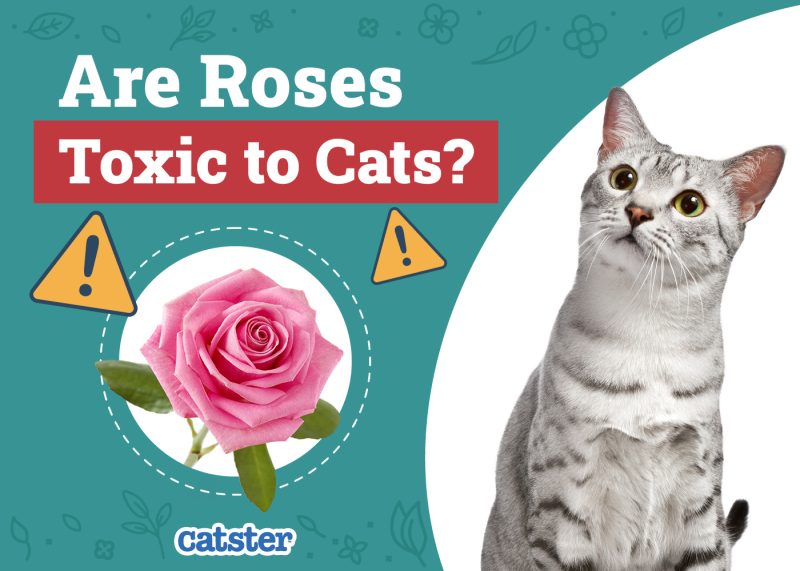
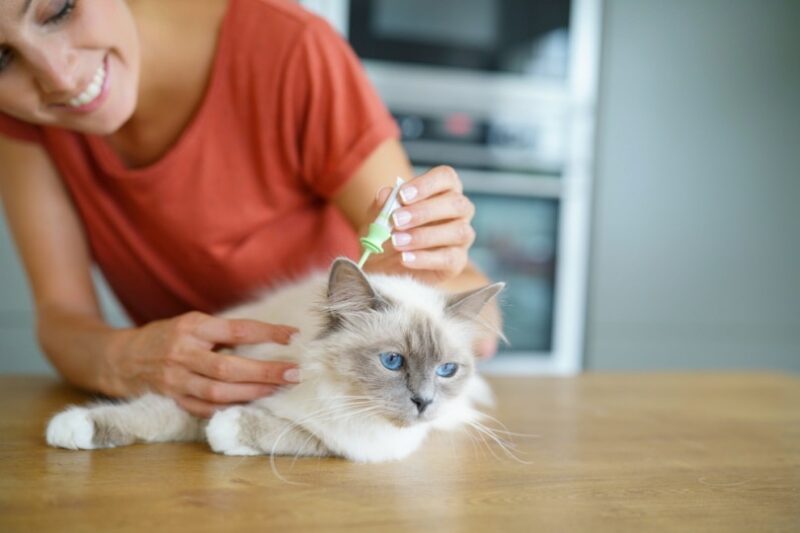
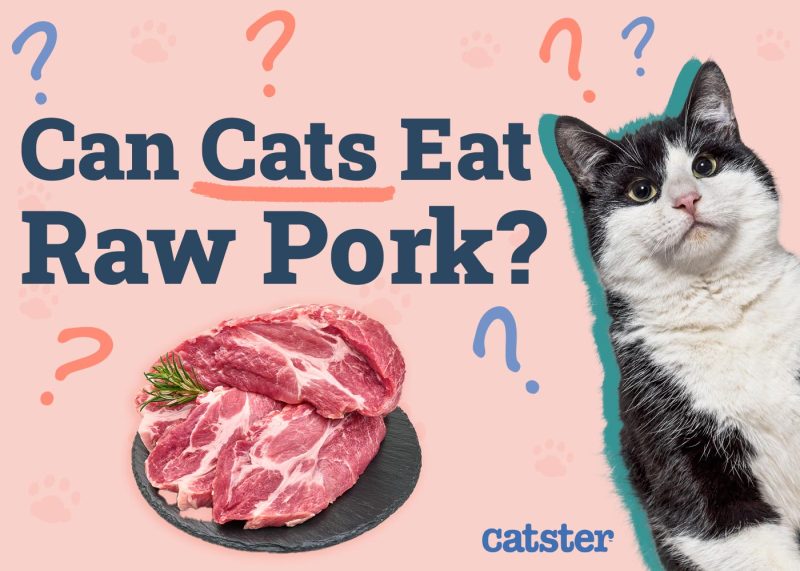
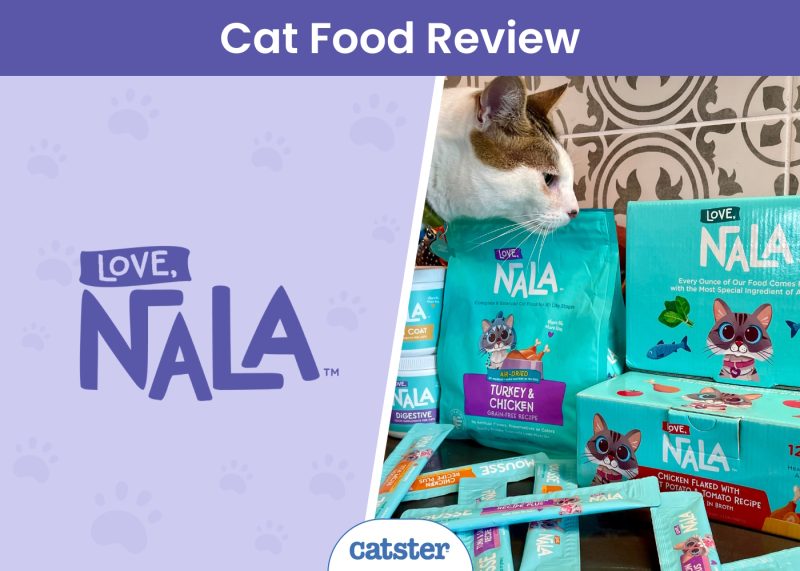
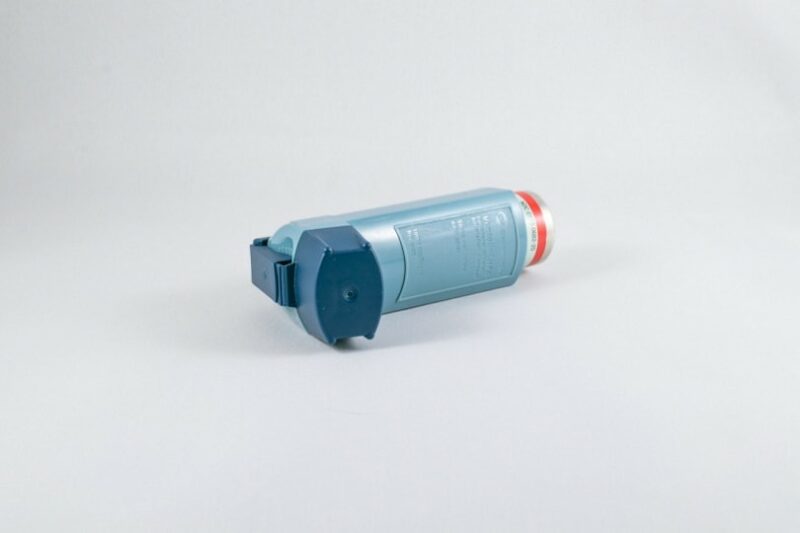

2 Responses
can I feed my cat beef tallow? she's seriously underweight and I want her to add weight.
Hi Abdulhamid. This might not be ideal. Cats require animal fat in their diet, but an excess of the wrong type can lead to an upset stomach and potentially pancreatitis. We recommend scheduling a consultation with one of our veterinarians at www.pangovet.com. They will be happy to assist you with the next best steps for her care.